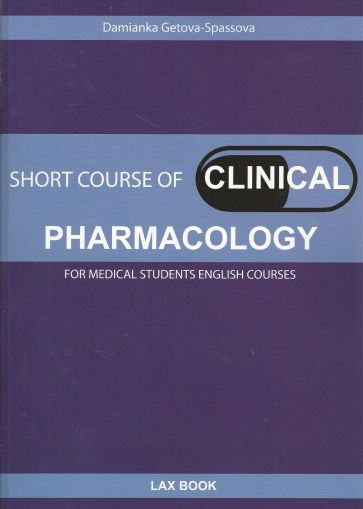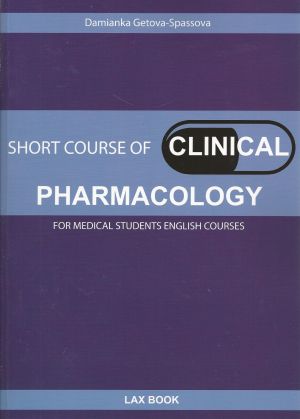Short Course of Clinical Pharmacology
Цена:
€7.67
15.00 лв.
-
Код:KS1160
For medical students English courses
The clinician's ability to treat diseases has been enhanced by the development of many useful new medications. The prompt and accurate diagnosis of many diseases has been also facilitated in recent years by technological advances of medical imaging and clinical chemistry. They are many widespread clinical trials. The new millennium gave us the development of useful guidelines and clinical paths and approaches for treatment different common diseases. They are ready access to other sources of information as MEDLINE, Web sites, professional societies and many others.
Despite these advances in diagnostic abilities and availability of information, prescribing drugs optimally has not become correspondingly easier. Modern health care management has often increased expectations that primary care physicians (family doctors) will assume more direct responsibility for the comprehensive medical treatment of patients with a wider range of disease. The current text book fills the gap between pharmacology knowledge and clinical practice. The information and consensus given here will permit you at the beginning of your practice to make easy decisions on cases which you strike during first days of clinical work. The knowledge taken from the present book will help you to make the best therapy and correct drugs combinations. It is important to recognize that the best available evidence are often derived from studies conducted in group of patients who do not complete resemble the specific patients sitting before the physician. The book is created to help emphasize therapeutic principles to help doctors adapt the best available evidence to suit specific needs of each individual patient.
They are needs to consider a number of clinical outcomes on at least the following four axes:
1. How this treatment improved the patient’s functional status?
2. How has the treatment altered the course of the disease?
3. What are the direct and indirect costs of the treatment chosen?
4. What is the level of patient's overall satisfaction with the treatment provided?
We hope that the approaches described in the book will help the prescriber practice clinical pharmacology in a manner that delivers greater overall quality of care for patients. Understanding the principles of rational drug therapy will help physician to maintain competence in a rapidly changing medical environment and making decision more reliable and decision making more interesting.
The Editor





